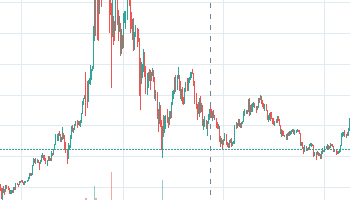With digital currencies like Bitcoin becoming increasingly popular, the Financial Accounting Standards Board (FASB) is conducting research to determine if blockchain-based currencies should be held to a set of Generally Accepted Accounting Principles (GAAP) similar to those used by businesses dealing in conventional currencies. These standards would be learned by any accountant earning a Masters in Accounting, so the creation of Bitcoin-specific principles could automatically make upcoming generations of accountants more knowledgeable about how to deal with digital currencies. With the Bitcoin industry being in its relative infancy, regulatory concerns are beginning to arise about the importance of properly accounting for the rising number of Bitcoin transactions.
Upholding the Integrity of the Bitcoin System
While many proponents and users of Bitcoin might object to the idea of being held to GAAP standards under the guidance of the FASB, doing so would make the currency more widely accepted in both business-to-business and retail environments. Adversely, a lack of an accounting standard for Bitcoin could prevent it from reaching its full economic potential. While studying for an online masters in accounting at Ohio University, I learned how important accounting principles and standards are, particularly in the context of conducting business. Failing to establish accounting guidelines for Bitcoin will keep many professional accountants and businesses from safely and effectively utilizing the currency.
Widespread Usage Raising Questions of Accountability
As more major corporations like Microsoft and Overstock begin to accept Bitcoin as a form of online payment, many skeptics and agencies are suggesting a need for consistent guidelines. Although proponents of Bitcoin rightfully exclaim the superb security of blockchain technology, critics point out that it's also frequently used by cyber criminals. A number of hacking attacks have led to companies and individuals having to pay out “ransoms” in order to regain access to their data and devices, with the money being demanded in the form of Bitcoin, including the famous WannaCry ransomware attack. However, rather than vilifying and condemning the currency altogether, the more sensible course of action would be to apply accounting standards to its usage.
A Sign of Advanced Acceptance and Implementation
Some users have expressed concern over the proposition of having the FASB set standards for Bitcoin accounting, noting that it could create constraints and limitations on a system that is currently working just fine as-is. However, on the flip side of the coin, one must consider that the push for Bitcoin accounting regulations means that the currency is essentially transitioning from a toddler into an adolescent – taking on and being entrusted with more responsibility in the process.
Setting Bitcoin Ahead of Other Digital Currencies
Another benefit of setting specific accounting standards for Bitcoin would be to positively differentiate it from a growing list of unregulated alternatives such as Litecoin (LTC), ZCash (ZEC), Ethereum (ETH), and Ripple (XRP). Of course, it only makes sense that Bitcoin would be ahead of the rest in terms of regulation, as it was the first major blockchain-driven currency to appear back in 2009.


 Updated every 10 minutes
Updated every 10 minutes


